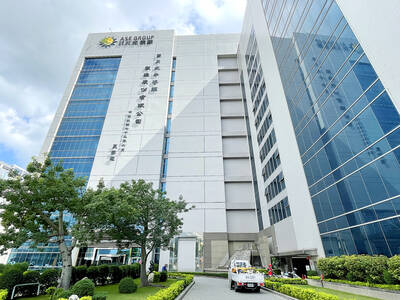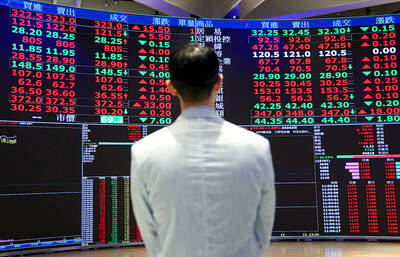Minister of Finance Lee Sush-der (李述德) said yesterday his ministry favored lowering the ceiling for inheritance and gift taxes to 10 perceAnt from 50 percent to spur economic growth.
Lee made the statement at a meeting of the legislature’s Finance Committee, which was reviewing the ministry’s budget for next year.
“The ministry is inclined to back the proposal to cap the levy at 10 percent,” Lee said when Chinese Nationalist Party (KMT) Legislator Liao Cheng-ching (廖正井) asked for his stance on the matter.
“The adjustment is more reasonable ... The Cabinet will have the final say on the matter,” Lee said.
A day earlier, the Tax Reform Committee proposed five options: capping the tax at 10 percent, 20 percent, 25 percent or 30 percent or leaving it untouched at 50 percent.
Lee said a cap of 10 percent would cost the national treasury some NT$20 billion (US$617 million) a year, but higher rates would fail to bring overseas Taiwanese capital back to Taiwan.
“The finance ministry considers it better to lower the tax to 10 percent to promote economic growth and social fairness,” Lee told lawmakers.
The inheritance and gift taxes stand at between 2 percent and 50 percent depending on the amount inherited or given.
Some argue that the tax cut is necessary to turn Taiwan into a regional financial center, because Hong Kong and Singapore have both scrapped the levy.
Lee said the ministry also intended to propose raising the tax exemption threshold for gifts and inheritance to NT$12 million from NT$7.79 million.
In addition, the minister said the government was working to lower personal income taxes, with funds to be drawn instead from high-tech companies, which will have to pay more taxes after the Statute for Upgrading Industries (促進產業升級條例) expires next year.
Up to 5 million households are expected to benefit from the income tax cut that still needs approval from the Cabinet and the legislature.
Democratic Progressive Party (DPP) Legislator Huang Wei-cher (黃偉哲) said the idea of cutting income tax was a red herring to divert the public’s attention from the dispute over the inheritance levy.
Huang said he and other DPP colleagues would not accept cutting the inheritance and gift taxes to 10 percent and would boycott the proposal in the legislature.

EXPANSION: The investment came as ASE in July told investors it would accelerate capacity growth to mitigate supply issues, and would boost spending by 16 percent ASE Technology Holding Co (ASE, 日月光投控), the world’s biggest chip assembly and testing service provider, yesterday said it is investing NT$17.6 billion (US$578.6 million) to build a new advanced chip packaging facility in Kaohsiung to cope with fast-growing demand from artificial intelligence (AI), high-performance-computing (HPC) and automotive applications. The new fab, called K18B, is to commence operation in the first quarter of 2028, offering chip-on-wafer-on-substrate (CoWoS) chip packaging and final testing services, ASE said in a statement. The fab is to create 2,000 new jobs upon its completion, ASE said. A wide spectrum of system-level chip packaging technologies would be available at

Taiwan’s foreign exchange reserves hit a record high at the end of last month, surpassing the US$600 billion mark for the first time, the central bank said yesterday. Last month, the country’s foreign exchange reserves rose US$5.51 billion from a month earlier to reach US$602.94 billion due to an increase in returns from the central bank’s portfolio management, the movement of other foreign currencies in the portfolio against the US dollar and the bank’s efforts to smooth the volatility of the New Taiwan dollar. Department of Foreign Exchange Director-General Eugene Tsai (蔡炯民)said a rate cut cycle launched by the US Federal Reserve

HEAVYWEIGHT: The TAIEX ended up 382.67 points, with about 280 of those points contributed by TSMC shares alone, which rose 2.56 percent to close at NT$1,400 Shares in Taiwan broke records at the end of yesterday’s session after contract chipmaker Taiwan Semiconductor Manufacturing Co (TSMC, 台積電) hit a fresh closing-high amid enthusiasm toward artificial intelligence (AI) development, dealers said. The TAIEX ended up 382.67 points, or 1.45 percent, at the day’s high of 26,761.06. Turnover totaled NT$463.09 billion (US$15.22 billion). “The local main board has repeatedly hit new closing highs in the past few sessions as investors continued to embrace high hopes about AI applications, taking cues from a strong showing in shares of US-based AI chip designer Nvidia Corp,” Hua Nan Securities Co (華南永昌證券) analyst Kevin Su

Nvidia Corp’s major server production partner Hon Hai Precision Industry Co (鴻海精密) reported 10.99 percent year-on-year growth in quarterly sales, signaling healthy demand for artificial intelligence (AI) infrastructure. Revenue totaled NT$2.06 trillion (US$67.72 billion) in the last quarter, in line with analysts’ projections, a company statement said. On a quarterly basis, revenue was up 14.47 percent. Hon Hai’s businesses cover four primary product segments: cloud and networking, smart consumer electronics, computing, and components and other products. Last quarter, “cloud and networking products delivered strong growth, components and other products demonstrated significant growth, while smart consumer electronics and computing products slightly declined,” compared with the